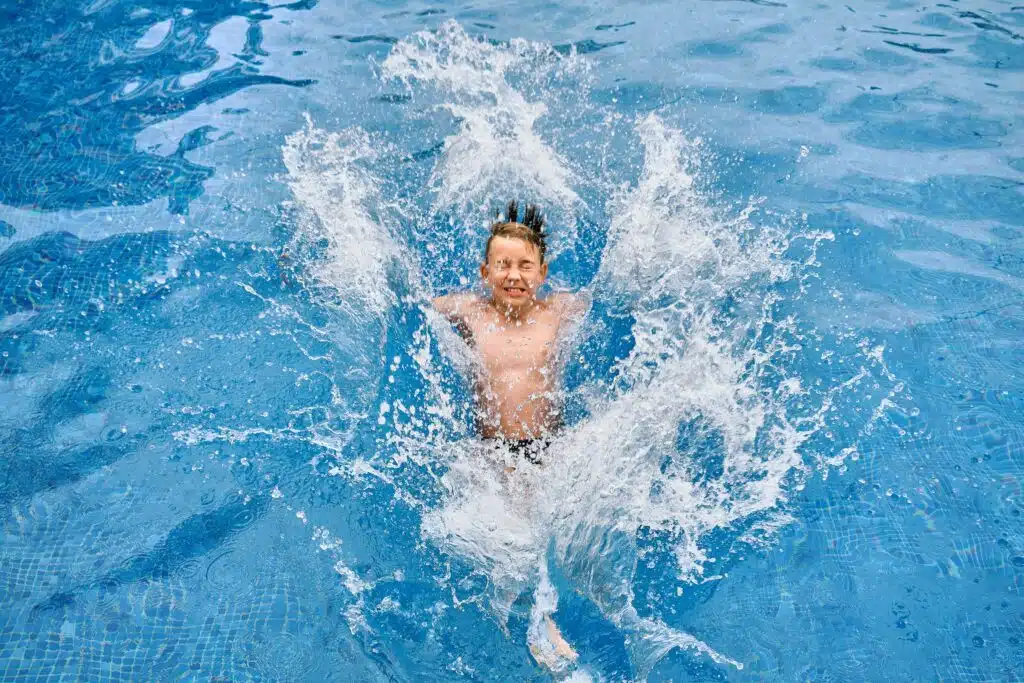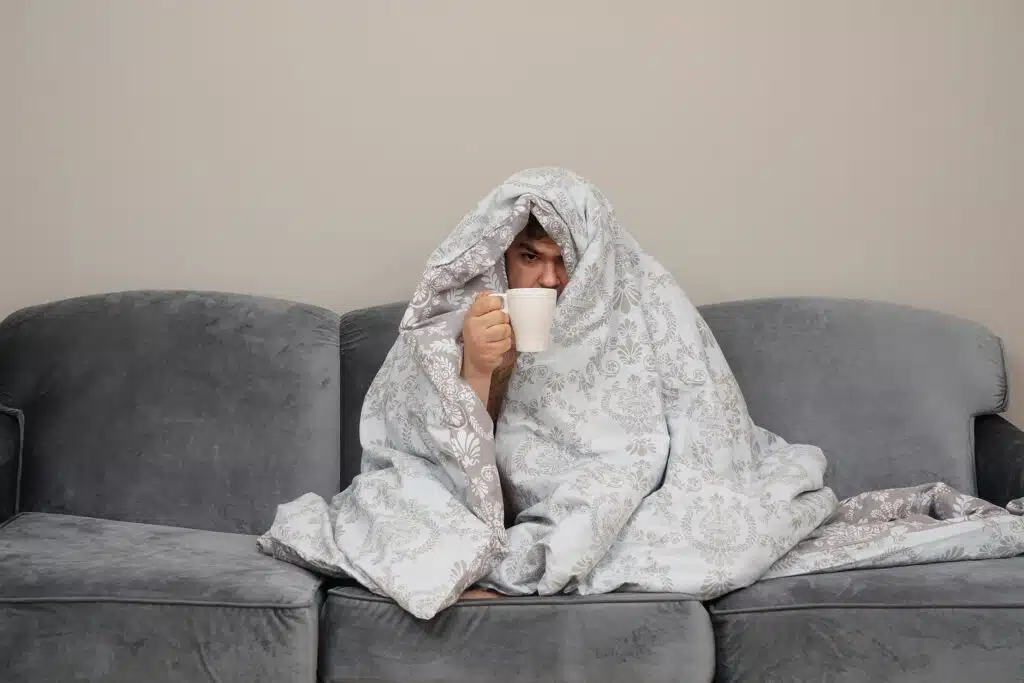Parenting comes with various beliefs passed down through generations, some of which have been ingrained in our collective understanding. However, many of these long-held notions are being debunked as science progresses. It’s common for parents to encounter advice that might have seemed sensible but lacks a foundation in scientific reality.
1. “Sugar Makes Kids Hyper”

Despite the widespread belief that a sugar rush can turn children into little tornadoes of energy, scientific studies have consistently debunked this myth. Research shows that there is no direct link between sugar consumption and hyperactivity in children. Instead, other factors like excitement, parties, or the environment might contribute to the perception of increased activity. While monitoring sugar intake for overall health reasons is essential, attributing hyperactivity to a sugary treat might be an oversimplified explanation.
2. “You Lose 90% of Your Body Heat Through Your Head”

Contrary to the popular notion that most body heat escapes through the head, studies have demonstrated that heat loss occurs evenly across the body. The idea likely originated from a misinterpretation of an old military study. The amount of heat lost depends on the surface area exposed, not the specific body part. Wearing a hat in cold weather is beneficial but doesn’t disproportionately prevent heat loss compared to other covered body parts.
3. “Eating Before Swimming Causes Cramps”

The belief that eating before swimming leads to cramps has been widely accepted, but there’s no scientific evidence supporting this claim. Our bodies are equipped to digest food efficiently, even before physical activity. Cramps during swimming are more likely related to dehydration or improper breathing techniques rather than the timing of meals. It’s crucial to debunk this myth to encourage a healthy approach to nutrition and physical activity without unnecessary fears.
4. “Reading in Dim Light Ruins Your Eyesight”

The idea that reading in low light damages eyesight is a common misconception. While it’s true that reading in poor lighting can cause eye strain and discomfort, it doesn’t result in permanent damage. The eyes adjust to various light conditions, and reading in dim light might lead to temporary discomfort but not a lasting impact on vision. This myth highlights the importance of maintaining comfortable reading conditions but dispels the unfounded fear of long-term harm.
5. “Cracking Knuckles Causes Arthritis”

Many people have been warned about the supposed connection between knuckle cracking and arthritis, but scientific studies have not supported this claim. The sound produced during knuckle cracking is due to the release of gas bubbles in the synovial fluid, which lubricates the joints. Research has shown that knuckle cracking doesn’t increase the risk of arthritis, and those who crack their knuckles regularly haven’t shown higher rates of arthritis compared to non-crackers. This persistent myth serves as a reminder that not all common beliefs have a basis in scientific fact.
6. “TVs Rot Your Brain”

The idea that watching too much television can rot the brain is a myth that has persisted for years. While excessive screen time can negatively impact health, the notion of brain rot is an oversimplification. Modern research suggests that the content and context of screen time matter more than the medium itself. The brain is a complex organ, and attributing deterioration solely to television oversimplifies the intricate factors influencing cognitive function.
7. “If You Touch a Baby Bird, the Mother Will Reject It”

The belief that touching a baby bird will lead to its rejection by the mother is a common misconception. Most birds have a limited sense of smell and won’t reject their chicks based on human scent. Leaving a fallen chick alone can pose more significant risks than briefly handling and returning it to the nest. This myth underscores the need for accurate information to ensure the well-being of wildlife and dispel unfounded fears that may discourage necessary interventions.
8. “Teething Causes High Fever”

Medical studies have debunked the association between teething and high fever. While teething may cause mild discomfort and a slight increase in temperature, it doesn’t lead to the high fevers some parents attribute to the process. Unrelated infections are more likely to cause fevers during teething. Understanding the true nature of teething symptoms can help parents differentiate between normal developmental processes and potential health concerns.
9. “Eating Chocolate Causes Acne”

The belief that indulging in chocolate leads to acne has been a persistent myth. Scientific research has failed to establish a direct link between chocolate consumption and skin breakouts. Acne is a multifactorial condition influenced by genetics, hormones, and skincare habits. While a balanced diet is essential for overall health, singling out chocolate as a primary culprit for acne oversimplifies the complex factors contributing to skin conditions.
10. “Babies Should Sleep Through the Night by 3 Months”

The expectation that babies should sleep through the night by three months is a common misconception that can create undue stress for parents. Sleep patterns vary widely among infants; achieving a whole night’s sleep early on is not a universal milestone. Recognizing and respecting the individuality of each baby’s sleep development is crucial. Dispelling this myth can help parents adopt realistic expectations, promoting a more relaxed and supportive approach to their child’s sleep habits.
10 Things People Hated When They Were Younger But Love Now
Photo Credit: Shutterstock
Discovering new likes and preferences is a natural part of the human experience, and as we grow older, our tastes often evolve. What once seemed unappealing or uninteresting in our youth can surprisingly become sources of joy and appreciation as we mature.
10 Things Boomers Loved Before the Advent of Smartphones Changed Everything

In the fast-paced digital age, we find ourselves in today, it’s almost impossible to imagine a time when smartphones were not an extension of our daily lives. These pocket-sized devices have revolutionized how we communicate, work, and navigate the world. At this point, technology will continue growing and becoming a permanent fixture in our lives. Still, there is a growing sentimentality and yearning for the simplicity and authenticity of the bygone days. The era before smartphones, often referred to as a simpler time, holds a special place in the hearts of many.
10 Surprising Things Women Do Better Than Men
Photo Credit: Deposit Photos
Throughout time, there have been debates about the superiority of one gender over the other. However, whether women exceed men at specific tasks has been a common conversational topic. The following is a list of things women are better at than men, based on opinions shared by different people on a popular online forum.
13 Underrated Life Skills Everyone Should Know That May Improve Your Life
Photo Credit: Shutterstock
Specific life skills often go overlooked in a world that increasingly emphasizes academic achievements and professional success. While traditional markers of achievement like degrees, certifications, and job titles hold their importance, a set of underrated life skills can significantly enhance our daily lives and help us navigate the complexities of modern existence. Often overshadowed by their more glamorous counterparts, these skills are the unsung heroes that empower us to thrive in diverse situations, build stronger relationships, and cultivate personal well-being.
10 Essential Things No One Pays Attention To, But Should
Photo Credit: Shutterstock
In the whirlwind of modern life, we often find ourselves consumed by the pressing demands and distractions surrounding us. Amidst this chaos, essential aspects of our lives often slip through the cracks of our attention. These are the overlooked gems, the vital elements that hold the power to impact our well-being and the world around us significantly.
This article was produced and syndicated by The Cents of Money.
Hi There!
With a passion for investing and personal finance, I began The Cents of Money to help and teach others. My experience as an equity analyst, professor, and mom provide me with unique insights about money and wealth creation and a desire to share with you.





